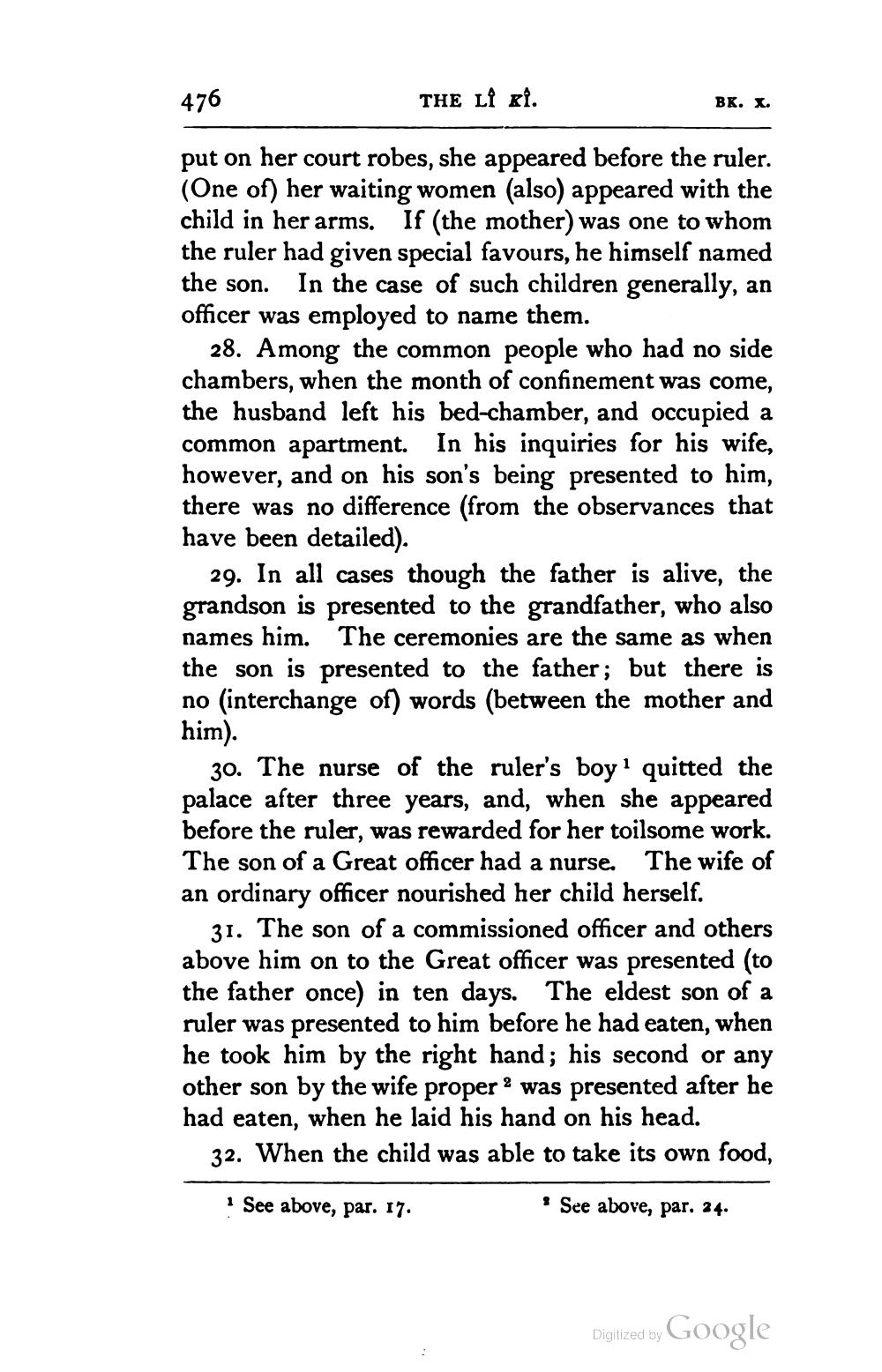________________
476
THE LÎ ri.
BK. X.
put on her court robes, she appeared before the ruler. (One of) her waiting women (also) appeared with the child in her arms. If the mother) was one to whom the ruler had given special favours, he himself named the son. In the case of such children generally, an officer was employed to name them.
28. Among the common people who had no side chambers, when the month of confinement was come, the husband left his bed-chamber, and occupied a common apartment. In his inquiries for his wife, however, and on his son's being presented to him, there was no difference (from the observances that have been detailed).
29. In all cases though the father is alive, the grandson is presented to the grandfather, who also names him. The ceremonies are the same as when the son is presented to the father ; but there is no (interchange of) words (between the mother and him).
30. The nurse of the ruler's boyquitted the palace after three years, and, when she appeared before the ruler, was rewarded for her toilsome work. The son of a Great officer had a nurse. The wife of an ordinary officer nourished her child herself.
31. The son of a commissioned officer and others above him on to the Great officer was presented (to the father once) in ten days. The eldest son of a ruler was presented to him before he had eaten, when he took him by the right hand; his second or any other son by the wife proper 2 was presented after he had eaten, when he laid his hand on his head.
32. When the child was able to take its own food,
i See above, par. 17.
* See above, par. 24.
Digitized by Google




